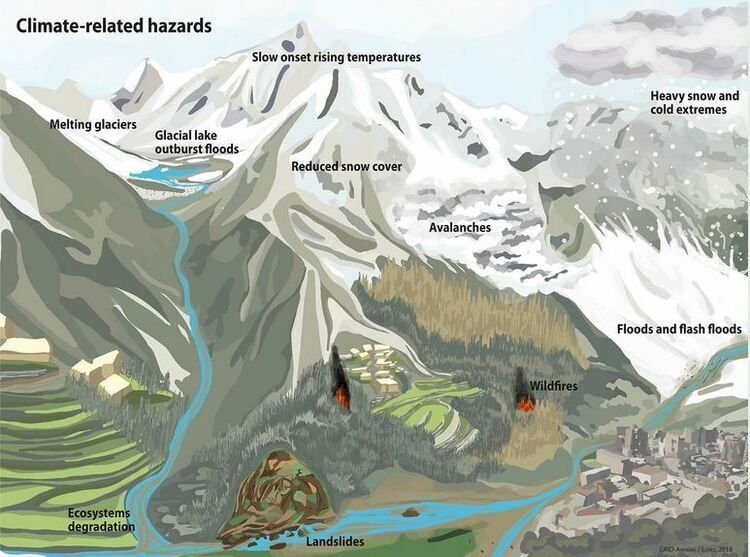
The Universal meets the Himalayan Particular: Interrogating Race, Caste, and Environmental Determinism in India
Talk by Mabel Denzin Gergan
Covered with dense forests, seismically active, landslide-prone, and receiving the bulk of monsoonal rains, the Indian Himalayan Region has long been characterized as a “difficult landscape” with an “inhospitable terrain” in both colonial British and Indian state discourse. More recently, in reports from state and international development institutions like the IPCC, akin to charismatic, endangered megafauna, the Hindu-Kush Himalayan region occupies a central place within apocalyptic forecasts of a ruinous future wherein climatic and geological volatility are set to destabilize regional ecology and geopolitical security. In this talk, I place these discourses of vulnerability and crisis in the Himalayan region within broader, universal framings of Euro-Western epistemologies, dominant climate change frameworks, and Hindutva (Hindu nationalism). Drawing on empirical and theoretical discussions from my research on hydropower and the Lepcha Indigenous anti-dam movement in the Eastern Himalayan state of Sikkim, I show how interrogating race, caste, and environmental determinism might help us better understand the great geographic and racial unevenness of anthropogenic climate change in the Indian context. I argue that such an interrogation requires we develop fluency in regional particularities, what geographer Tariq Jazeel (2011: 88) refers to as decolonial orientation, one that is attentive to “indeterminate categories, events, and experiences” that are not “immediately comprehensible by the violent normalization of a universal claiming to speak for the particular.” In the last half of the talk, I center the experiences of the region’s Indigenous and tribal communities and ask how these groups imagine and speak of their homelands, past, and the future to come.
Mabel Denzin Gergan is an Assistant Professor in the Department of Asian Studies at Vanderbilt University. She has a Ph.D. in Geography from the University of North Carolina at Chapel Hill and an M.A. from the Tata Institute of Social Sciences, Mumbai. Her research is based in the Indian Himalayan region. It examines its relationship with ‘mainland’ India, characterized on the one hand by state-led development and climate change interventions and, on the other, through the movement of racialized bodies from the borderland to India’s urban heartland. She is a scholar of environmental justice, indigeneity, and race with special interests in political ecology, environmental humanities, and decolonial theorizing.